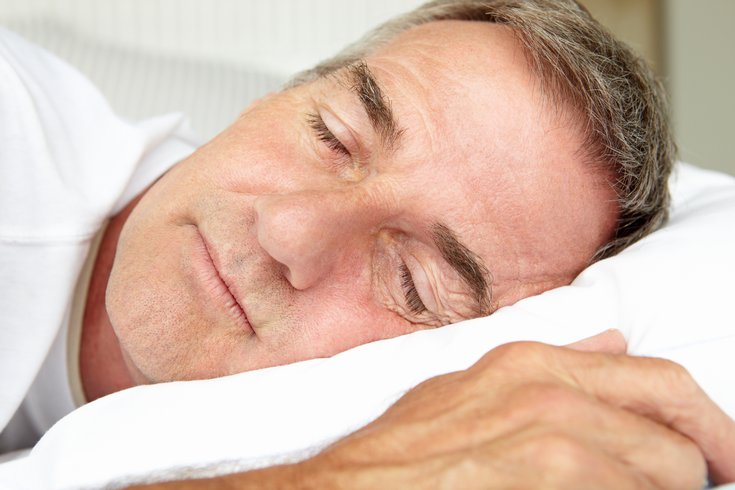
August 28, 2020
 Source/Image licensed from Ingram Image
Source/Image licensed from Ingram Image
To get better sleep, health experts suggest sticking to a schedule, creating a restful environment and managing worries.
I don’t know the level of stress and insomnia that existed among colonial Philadelphians, but Ben Franklin spoke like a visionary when he said "early to bed, early to rise makes a man healthy, wealthy and wise."
Yes, with all of his contributions to our country and life as we know it today, these words ring truer than ever.
For within the continuum of life’s health-related aspirations on which I’ve opined – fitness, happiness and relationships – a good night’s sleep sits at the epicenter. Sleep has the power to make us feel great, or trigger potentially harmful repercussions when cut short.
It literally affects us all.
According to the U.S. Centers for Disease Control and Prevention, more than a third of American adults are not getting the recommended seven to eight hours per night on a regular basis, raising a public health concern.
Research from the Division of Sleep Medicine at Harvard Medical School says that when we miss sleep in order to keep up with our busy world, we pay a price with our ability to learn, our health and safety, and our quality of life.
Short term, a lack of adequate sleep can affect judgment, mood, ability to learn and retain information, and may increase the risk of serious accidents and injury. In the long term, chronic sleep deprivation may lead to a host of health problems including obesity, diabetes, cardiovascular disease and even early mortality.
Beyond our physical condition, a lack of sleep can have a profound impact on our social and sexual life, as well as our overall mental health.
Findings reported by the National Center for Biotechnology Information say that acute sleep deprivation and looking tired are related to decreased attractiveness. Their reports indicate that naturalistic sleep loss can be detected in a face and that people are less inclined to interact with a sleep-deprived individual.
Another report from NCBI found a significant connection between insomnia severity and sexual function, suggesting that distress and dysfunction in sleep and sex are both very common.
Finally, I tapped my colleague Dr. Anthony Rostain, chief of psychiatry at Cooper University Health Care, for his thoughts on the importance of sleep. He put it succinctly, telling me that "sleep is the most undervalued contributor to mental health."
Rostain also remined me of a very practical fact that many of us may not fully appreciate; once you lose sleep you can’t make it up. Even if it were possible, binge sleeping on the weekends doesn’t do it.
Experts offer an extensive number of strategies to get better sleep. Below are just three from the Mayo Clinic that I have found particularly effective:
Regular exercise is also a much-cited strategy, as is the recommendation to see your doctor, no matter how difficult it may be for a man to fathom doing so for something like sleep.
As a healthy behavior geek, I have built a daily routine around a seven- to eight-hour sleep schedule. It takes a lot of planning and some personal logistics to make it work. When I can’t get to bed by 9 p.m. or 9:30 p.m. in order to wake up at 4 a.m. for my morning workout, I simply try to push back the time I get up by the delay in getting to bed.
Sometimes I can make it work, sometimes I can’t. But, because my body is so programmed and ingrained in this schedule, any deviation is a big deal and makes me feel lousy.
So, I’m incentivized to make it work. I love my sleep and my routine. I’m blessed not to suffer from any of the factors that make a good night's sleep possible. My kids are adults, so with the exception of a sleepover by my grandson, I have a lot going for me – and I’m grateful.
Bottom line, the secret to a good night’s sleep is that there are no secrets, just some very basic behaviors that are easily understood, but challenging for so many to sustain.
If there is anything I’ve learned in my pursuit of a healthy lifestyle and an abundance of research on the subject, it is that sleep needs to be taken seriously. It cannot be relegated to a second-class function, something to be "fit-in" within the boundaries of a hectic life.
If not wealthy or wise, sleep may at least contribute to your ability to be healthy.
Louis Bezich, senior vice president of strategic alliances at Cooper University Health Care, is author of "Crack The Code: 10 Proven Secrets that Motivate Healthy Behavior and Inspire Fulfillment in Men Over 50." Read more from Louis on his website.